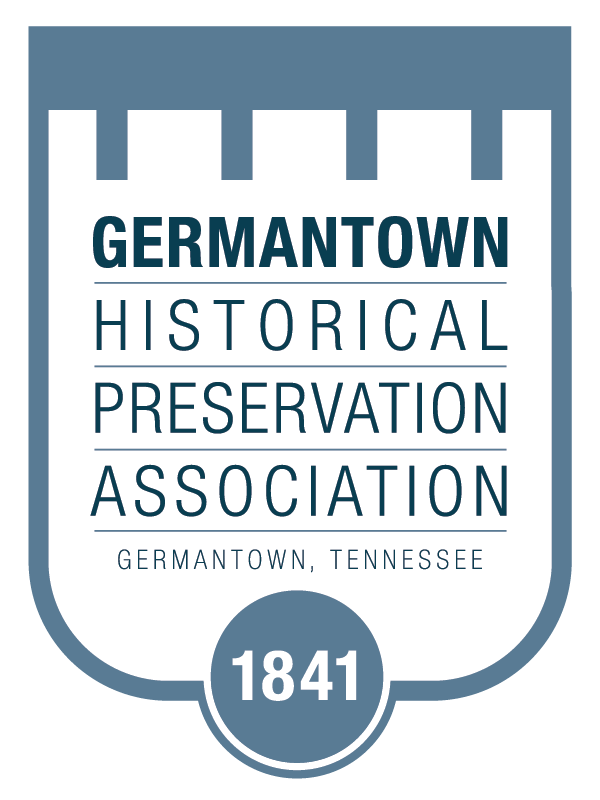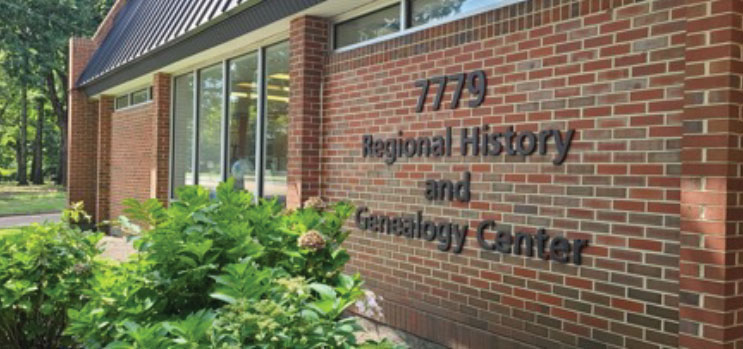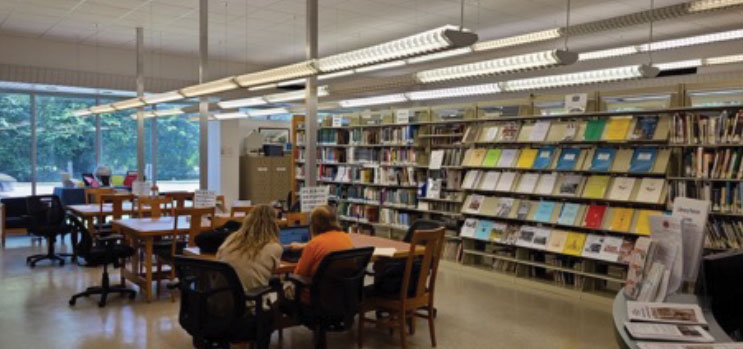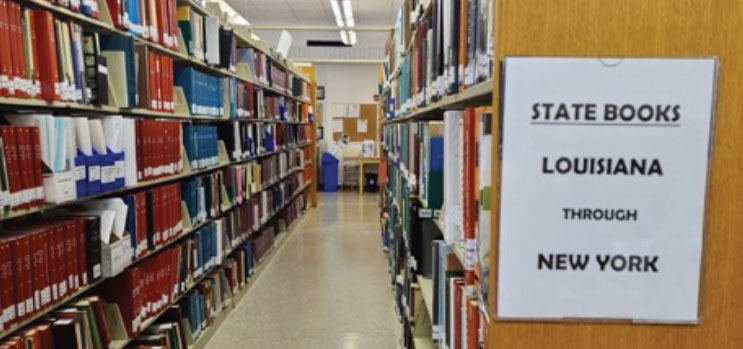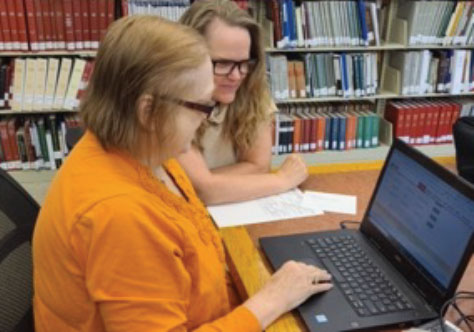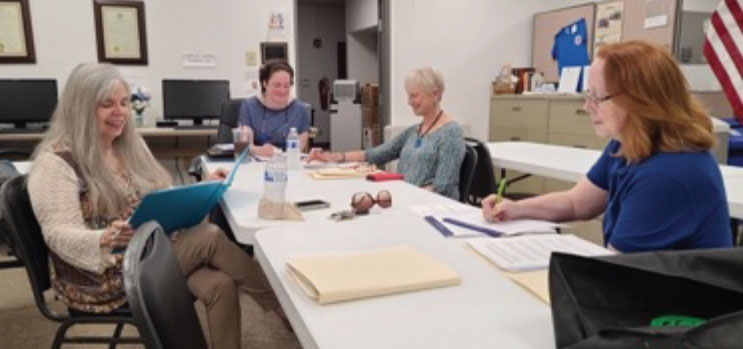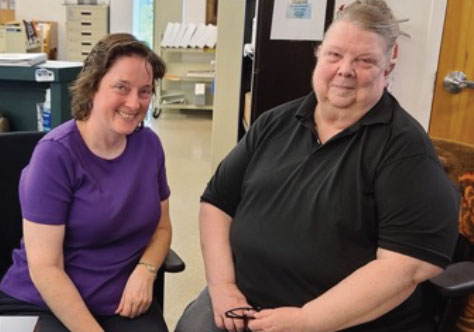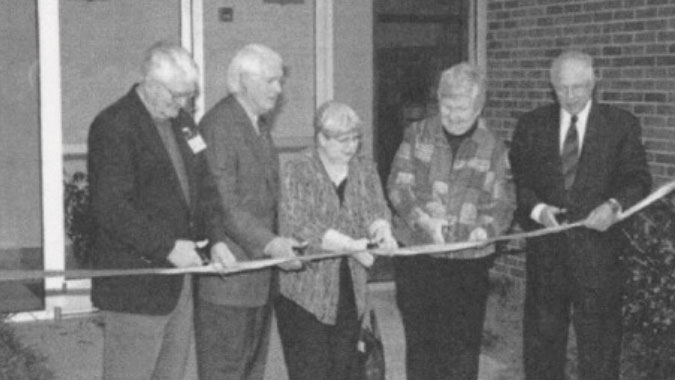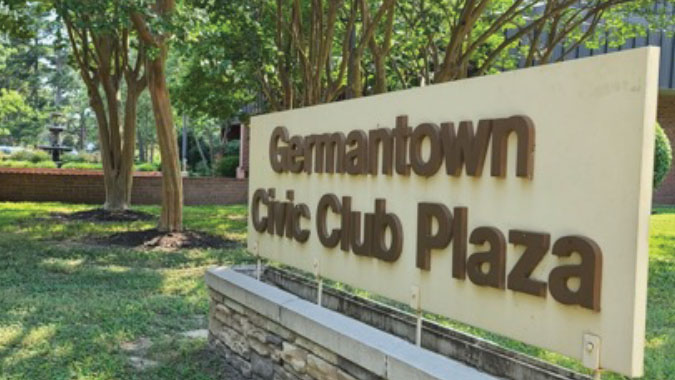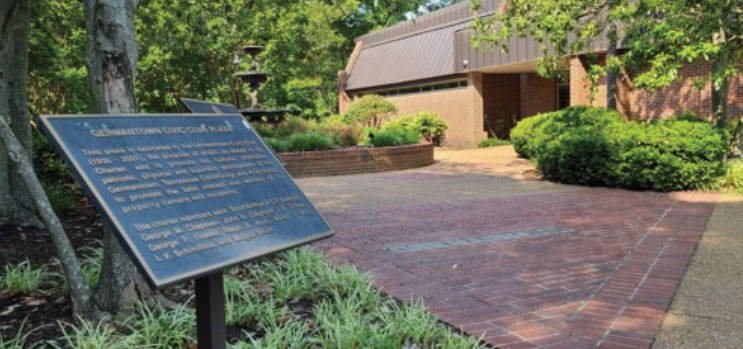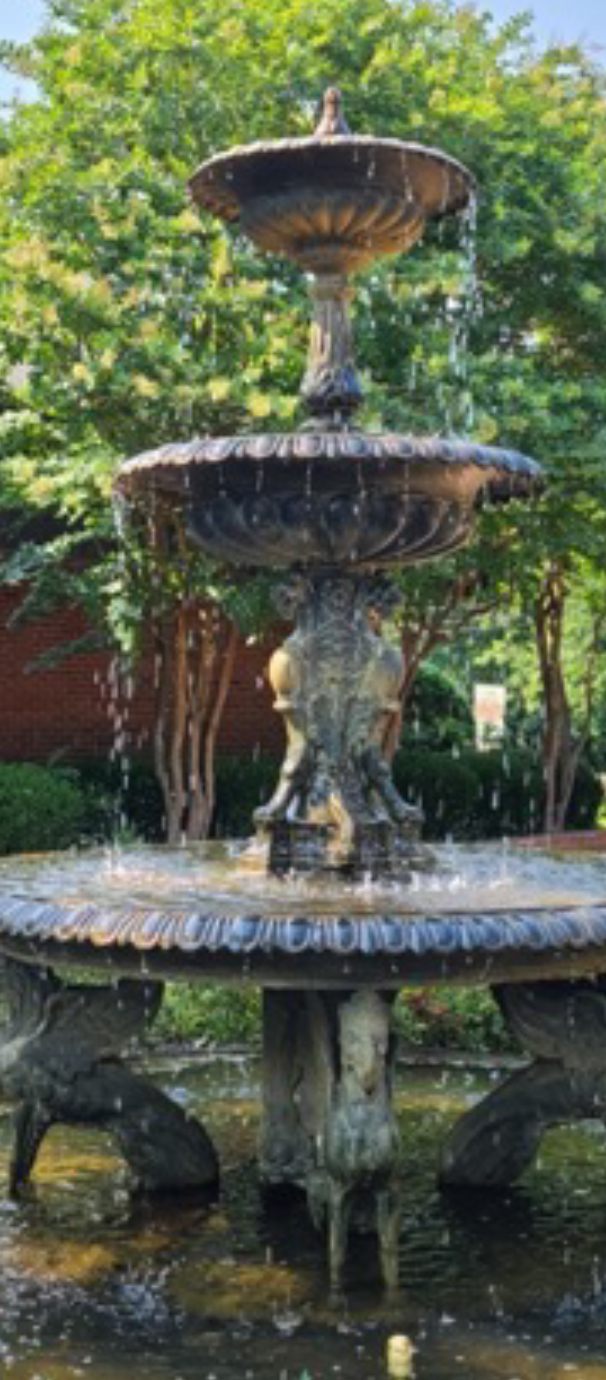
Germantown Regional History & Genealogy Center
Root transplant takes in G’town | History of Tennessee Genealogical Society | Virginia Walton Brooks | Tennessee Genealogial Society
By Andrew Pouncey
The Germantown Regional History and Genealogy Center (GRHGC) is the special collections division of the Germantown Community Library. It serves as a non-circulating repository and research center for genealogical and historic materials, Southern culture, and the Germantown History Collection. The GRHGC was made possible in large part by generous funding and in-kind donations from the Germantown Civic Club and the Tennessee Genealogical Society.
Information about their products, publications, membership, programming, events, and services are available at www.tngs.org.
Roots transplant takes in G’town
By Clay Bailey, Commercial Appeal, Nov., 16, 2006
Germantown completed the transition Wednesday of an old children’s theater to a collection of materials on history and ancestry.
The suburb, along with a collection of groups including the Tennessee Genealogical Society, consummated their partnership with the christening of the new Germantown Community Library’s, Regional History and Genealogical Center (GRHGC) on Poplar Pike near the Norfolk Southern Railway crossing in Old Germantown.
“The stars truly and magnificently aligned,” said Tom Cates, chairman of Germantown’s Library Board, who brokered the bulk of the deal.
The result is a new home for TNGS’s collection, the conversion of the former Morgan Woods Children’s Theatre (a former library) into a home for those materials, and an agreement that resulted in the suburb not only getting title to the land around the building, but a $330,000 donation ($80,000 to be used for the renovation of the old library building to house the GRHGC, and $250,000 to be used to establish an endowment fund to support and enhance the collection and presentation of books, materials, and other memorabilia documenting the history of the City and surrounding areas) from the Germantown Civic Club for the benefit of the new library.
The Tennessee Genealogical Society will bring more than $1 million worth of books and materials to the new library, part of the Germantown Community Library. The society is relocating its 14,000 book collection from its former home on Davies Plantation Road, where development was encroaching on the property.
But the timing of that agreement led to another aspect that benefited the library’s start. The Civic Club actually owned 8.296 acres, lying contiguous to Melanie Smith Lane on the east, near the new library. With an aging membership, the club was looking for a way to contribute to its legacy in the community. When they approached Cates about selling the land to the city, officials got an appraisal of $330,000. But rather than keeping the proceeds from the sale to the city, the club donated $250,000 back to the library for an endowment to enhance the collection of local history books and materials. The club then put much of the balance into improvements to the new facility and a plaza between it and the nearby Pickering center on Poplar Pike.
The city ended up with the title to land most people thought it owned anyway and realized a financial benefit from the Civic Club membership.
“The Civic Club hadn’t met in years. We were an inactive club, and we wanted to disband,” said Bobby Lanier, the Civic Club vice president. “We couldn’t think of a better place to spend the money than on education and the library.”
In exchange, the city will name the area the Germantown Civic Club Complex.
“This is the establishment of a substantial resource for the community- for our citizens as well of those from throughout the region and even nationally – who are in search of their roots.” Mayor Sharon Goldsworthy said.
History of Tennessee Genealogical Society
In 1943, a group of friends with a common interest in family history began meeting at the Memphis home of Virginia Walton Brooks and Berry B. Brooks. In time this group realized the need for a charter for the growing society. The Tennessee Genealogical Society was founded in 1952 and chartered by the state in 1954. It became the Memphis Historical Society, soon evolved into the Memphis Genealogical Society, and finally the Tennessee Genealogical Society in recognition of its being the first genealogical society issued a charter by the state. Its purpose was the acquisition, preservation, and making available, genealogical history and records, to educate family history researchers, and to publish materials relevant to Tennessee history and genealogy.
In 1954, they began publishing a quarterly news bulletin, the Ansearchin’ News.
Over the years, TNGS has had a number of locations, starting with Hawthorne Street in Memphis, then 3340 Poplar Avenue, followed in 1997 for ten years on Davies Plantation, 9114 Davies Plantation Road (2,800 square foot building) across from Davies Plantation in Bartlett. The society focused primarily on Tennessee. The center was staffed by volunteers.
In 2004, the Society began to outgrow its current location and look for a new facility. Mayor Goldsworthy, City Attorney Tom Cates and Librarian Dr. Sue Loper made a successful case for its relocation to Germantown. Finally in 2006, TNGS moved to their present location on 7779 Poplar Pike in Germantown. While the Society stands on its own, the collection became the property of the Regional History and Genealogy Center.
Virginia Walton Brooks, Founder
In 1943 Virginia Walton Brooks graciously offered the hospitality of her home and library at 283 Hawthorne in Memphis to a group of 14 friends who shared a common interest in genealogy. As she later said, her invitation was enthusiastically accepted by an increasing number of friends. The group soon evolved into the Memphis Historical Society … then the Memphis Genealogical Society … and finally, the Tennessee Genealogical Society in recognition of its being the first genealogical society issued a charter by the state. Over the years, the group of 14 expanded … reaching 48 by 1954… 497 by 1960 … and today some 1400 or so scattered from Maine to California.
Virginia headed the organization for its first seven years and was awarded an honorary lifetime membership. When she and her husband, the late Berry B. Brooks, built a new home in nearby Raleigh, TN, they named it Epping Forest Manor for the estate of her ancestor, Col. Joseph Ball, who was President George Washington’s maternal grandfather. While proud of her ancestry, she did not believe in boasting about it. All of us have a responsibility to emulate the early colonists and preserve the freedom they won for us with their strength, courage, wealth, and their very lives,’ she often said. In addition to their leadership in genealogical, civic, and social activities, Virginia and Berry were world travelers and avid collectors. Peacocks were her passion. At one time she had 22 of them. Virginia belonged to the Daughters of the American Revolution and the Jamestown Daughters of the Confederacy. When she died of heart failure in Memphis on 23 December 1997, Virginia was in her 93rd year.
Some years ago, in recalling TGS’ beginnings, Virginia Walton Brooks said, ‘here was a meeting of minds with mutual interest, objectives, and problems to be solved. Everyone shared their findings, gave suggestions, helped one another, and welcomed newcomers into the genealogical fold. That formula still guarantees success for any genealogical society.
And it’s the legacy Virginia leaves with us. God Bless!
- Source:
Ansearch’ News – Spring 1998
For a more detailed history of the Society, please read History of the Tennessee Genealogical Society by James Bobo.pdf
Tennessee Genealogical Society
The Society office is open Tuesdays, 10:00 am to 2:00 pm, and Thursdays, 10:00 am to 2:00 pm. Members are welcome to come in to discuss genealogical techniques, perform research and use the Society’s computers. For library hours, see Library.
We have a Membership Meeting in January, April, July, and October which is open to all members and is followed by a presentation. For the schedule, please see Events.
The Board of Directors meets the second Thursday of every month to address operations of the Society. Election of new officers is held every two years in October of odd-numbered years.
The plaza is dedicated to the Germantown Civic Club (1936-2007), the purpose of which, as stated in its Charter, was to promote the cultural, charitable, patriotic, physical, and business development of the Germanton, Tennessee Community, and in all things to promote the best interest and welfare of its property owners and residents.
The charter members were Boyd Arthur, A.C.T. Beasley, George M. Chapman, John H. Cleghorn, L. E. Dickey, George P. Friedel, Ralph B. Hunt, Walter D. May, L.V. Schmittou, and Wright Smith.
The Germantown Civic Club Plaza is located between the Germantown Regional History and Genealogical Center (7779 Poplar Pike) and the Pickering Center. It provides a peaceful setting in order to take a break from research or break into smaller, informal groups for discussion from meetings at either location. Designed by Landscape Architect Andrew Pouncey at the time of the GRHGC’s occupation of their facility, it is now home to the fountain that once occupied the northeast corner of Poplar Avenue and West Farmington at the original Saddle Creek. Its relocation was a project sponsored by the Leadership Germantown Class of 2016.
7779 Poplar Pike
Germantown Civic Club Complex
Regional History Collection
Genealogical Research
Tennessee Genealogical Society
Carla Maitland – President, Octaiva Ashby – TNGS Office Manager, GRHGC Branch Manager, Kay Dawson – Director of Membership, Nancey Walczyk – Director of Research
Octavia Ashby – GRHG Branch Manager, TNGN Office Manger
Sylvia Harris – GRHGC Library Associate 2, TNGN Director of Certificates
Ribbon Cutting
L. to R. Jim Bobo, Bobby Lanier, Dr. Sue Loper, Mayor Sharon Goldsworthy, Tom Cates.
Virginia Walton Brooks, 1904-1997
Germantown Civic Club Plaza, Entrance on Poplar Pike
Entrance from south parking lot
Home to the fountain that once occupied the northeast corner of Poplar Avenue and West Farmington at the original Saddle Creek.
